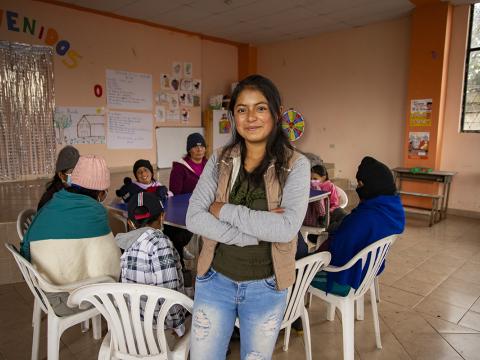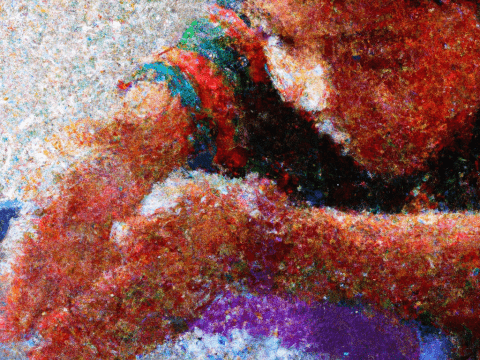If you're going to invest to fix injustice—start with girls
On the Day of the Girl Child Cristina Carvallo explains why World Vision has decided to prioritise helping girls in the Amazonian territory.
Friday 11 October, 2024
A recent UNICEF study revealed that nearly 81 million children in Latin America and the Caribbean are living in poverty, and 45% of children are affected by moderate or severe deprivation of their rights.
But things are much worse if you’re born a girl. Since 2011, every October 11 has been marked as the Day of the Girl Child. This day seeks to raise awareness of the injustice and inequity faced by millions of girls the world over:
- Currently, one in five young women between the ages of 20 and 24 were a child when they were married.
- Nearly one in four married or cohabiting adolescent girls has been sexually or physically abused.
- Globally, 75% of new HIV infections among adolescents occur in girls.
- One in three adolescent girls suffers from anemia, which is a form of malnutrition.
- Compared to boys, nearly twice as many adolescent girls (one in four) receive no education, employment or training. www.unicef.org.
- In countries such as Ecuador and Peru, the percentage of violent deaths that occur affects 13% and 10.2% of girls under 17 years of age, respectively.
These clear violations of rights affect girls now, but also compromise their future. These, and the many others I could have listed, should be a wake-up call for country leaders and civil society.
Invest where it’s most needed
The daily and future threat to girls specifically, and children in general, should make those with power and responsibility rethink how and why they invest. Allocating resources to strengthen child rights, girls’ inclusion, and girls’ education proves a commitment to protecting them.
This is especially important for girls who, through the accident of birth, find themselves in fragile contexts, or among people forced to leave their homes, or among native peoples who, sadly, are often excluded from decision-making fora.
A narrower focus for impact
What does this mean for the region where I work? The country offices of World Vision in the Andean Block - Bolivia, Ecuador and Peru, decided—without neglecting their work with the children of the coast and the Andean zone—have decided to focus on the girls and adolescents living in the Amazonian territory.
Why? Because these children and young people face a crippling reality that limits their possibilities for development, such as teenage pregnancy (37.2%), malnutrition (25.1%) and illiteracy (5.03%). To this end, we will carry out various initiatives that seek, together with them and in partnership with key actors, to contribute to changing their living conditions by:
- Promote the agency and participation of girls and adolescents in decision-making spaces, recognising and celebrating the potential that each one has;
- Establish practical alliances with key actors, including faith-based organisations, identifying good practices and lessons learned;
- Contribute to generating safer environments free of gender-based violence that allow them to live a life free of sexual abuse and exploitation;
- Collaborate with families and communities by promoting guidelines and practices that avoid sexist stereotypes that harm girls and boys;
- Develop initiatives that contribute to the economic autonomy of families, ensuring that the income generated is invested in the welfare of children.
World Vision believes in life in all its fullness for every child. So, we are reframing our work to promote gender equality and the empowerment of girls and women, to address the causes of discrimination and violence, and to invite girls to have a say in their own future development. If you are interested in doing the same, please be in touch with Cristina Carvallo (cristina_carvallo@wvi.org)
Learn more about our new campaign here
Cristina Carvallo is World Vision’s GESI Specialist for Bolivia, Ecuador & Peru, and also for Chile. Her goal, together with the GESI Committees of each country, is to progressively transform gender equality and inclusion into a central issue within the offices, their operations and human talent management.

